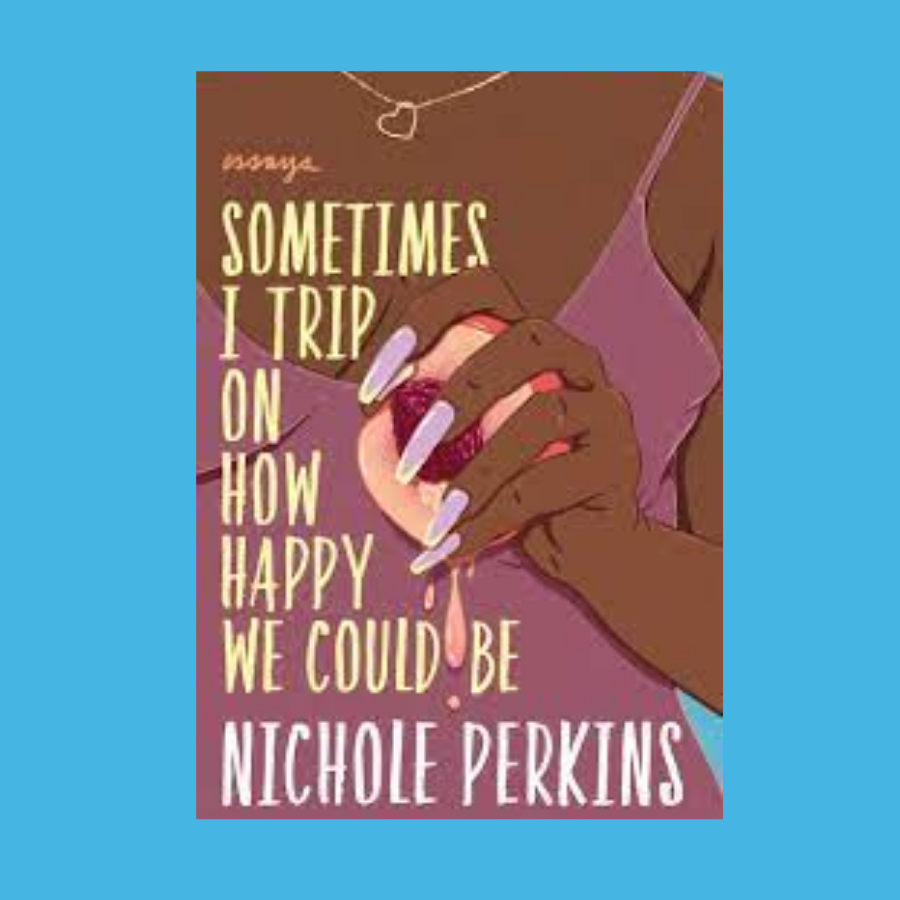CW: Sexual assault, abusive parental relationship, stalking
Depending on your music listening style, you will almost immediately recognize the title, Sometimes I Trip On How Happy We Could Be. It is a lyric from “If I Was Your Girlfriend” by Prince, which is the author Nichole Perkins’ favorite song by the royal purple one. Beyonce also sang the lyric in “‘’03 Bonnie & Clyde.” The memoir’s title is a reminiscence, a revelation before luxuriating in the words by Nichole Perkins.
A quote describing her childhood friend, Tanya says “got her hair done on a regular basis (in a salon, not a beauty school!),” which explains the difference between getting her hair done at the salon and at a beauty school. I immediately read it to my sister and mother because that is an “if you know, you know.” For those who don’t know, getting your hair done at the salon feels like a luxury, while getting your hair done at a beauty school will get the job done but you also know what you will get. View the video of “Bills, Bills, Bills” by Destiny’s Child for reference to a Black hair salon.
Perkins uses pop culture from a deliciously thoughtful tone. She uses television, particularly shows from a white gaze including “Cheers” and “Frasier” that she loves. As a Black woman, I related to watching shows that were diversity deficient yet captivated my attention. She writes about the abusive qualities of Kermit the Frog and Ms. Piggy’s relationship in relation to her parent’s abusive relationship.
The body is an atmosphere. The chapter, “Supple” touches upon the gaze of Black women and girls expressing femininity and being fetishized. She highlights Serena Williams and the challenges of her mental health on the global stage that is a ripe conversation in our zeitgeist. There are perspectives from how men see the body, how the world sees it, and how Perkins elevates it. From Perkins, she shares how she commanded her prowess. Her sexual power is written to not prove she is a sexual being but how she evolves. She also makes the case to give skinny men a chance, which even Judge Judy would be convinced.
She also wrote about the beloved bonnet, which Black women use to protect their hair. Her correlation between wearing a bonnet to discover her vulnerability is gorgeously brief. Someone, please send a copy of this book to Monique.
Place, in relation to family, is a centerpiece to Perkins’ memories. Her sister, Izzie’s bedroom was, as described “a shrine to MTV.” Perkins also has an aunt C, “who lives in the deep suburbs, close enough to be near family but far enough that there are no surprise visits.” I want to be this auntie. C opened Perkins up to new worlds in expanding her imagination and worldview.
Poems are peppered in the book. A text message from a former boyfriend.
Her experience at Dillard University, an HBCU in New Orleans, comes from knowing that she was always going to an HBCU. She grew up in Nashville, known to Fisk University, Meharry Medical College, and Tennessee State University. She details what could only happen at an HBCU.
The power of memoir is to learn about lives that you may not live yet you relate to. Perkins firmly takes you on a open road. Sometimes I Trip On How Happy We Could Be is of time, place, and the body. Nichole Perkins affirms the power of survival with the thunder of humor, nostalgia, and reverence to her roots and the present.


